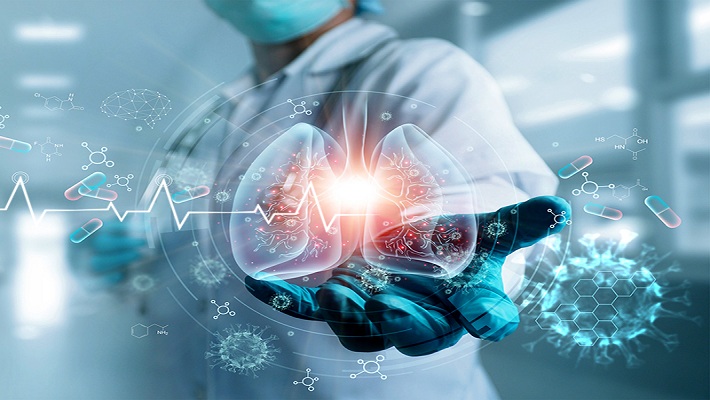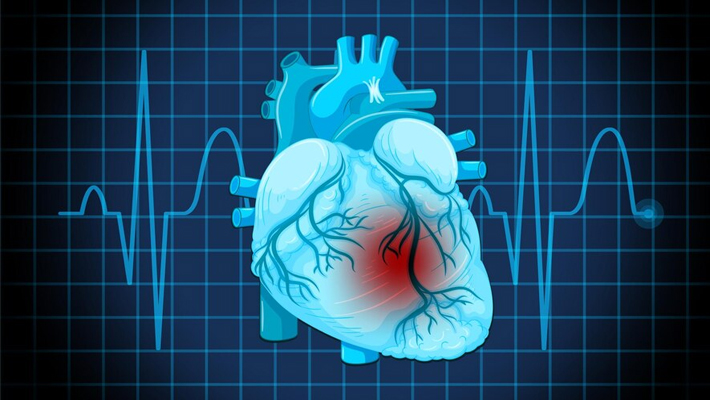
In recent years, the integration of Artificial Intelligence (AI) in the field of healthcare has been nothing short of transformative. One area where AI is making significant strides is in the diagnosis of diseases. By leveraging advanced algorithms and machine learning capabilities, AI systems are revolutionizing the way diseases are detected, enabling faster and more accurate diagnoses.
AI-based medical diagnosis systems are able to analyze large amounts of data quickly and accurately, which can lead to more accurate diagnoses and treatments. AI can also be used to identify patterns or trends in data that would otherwise be difficult to detect. This can help doctors identify diseases earlier and more accurately, which can ultimately lead to better patient care. AI-based systems can also provide valuable insights into how diseases progress and how treatments can be tailored to individual patients. This can help doctors make more informed decisions about the best course of action for each patient, leading to better outcomes and improved patient satisfaction.
However, there are also potential risks associated with using AI in healthcare. For example, if data from a patient's electronic health record (EHR) is used to train an AI system, and that patient's data is later found to be inaccurate, the AI system may also be inaccurate. This could lead to incorrect diagnoses and inappropriate treatments. For instance, if an AI system is trained on data from a population with a higher prevalence of a certain medical condition than the general population, the AI system may give a higher rate of false positives for that condition when used with the general population.
Enhanced Accuracy and Speed
Traditional disease diagnosis methods have relied on the expertise of human healthcare professionals, which can be subject to human error and variation in interpretation. AI, on the other hand, offers unparalleled accuracy and consistency. By analyzing vast amounts of medical data, AI algorithms can identify subtle patterns and indicators that may elude human observation. This capability enables early detection of diseases, leading to more effective treatment and improved patient outcomes.
Furthermore, AI-powered diagnostic systems can process and analyze medical data at an incredibly rapid pace, far surpassing human capabilities. This speed is particularly crucial in time-sensitive cases such as the detection of certain types of cancer or infectious diseases. By reducing diagnostic times, AI helps expedite treatment plans, leading to timely interventions and potentially saving lives.
Augmented Decision Support
AI systems act as valuable decision-support tools for healthcare professionals. They assist in complex diagnostic tasks by providing evidence-based insights and recommendations. By integrating patient data, including medical history, lab results, and imaging scans, AI algorithms can generate comprehensive reports that aid physicians in making accurate diagnoses.
For instance, in radiology, AI algorithms can analyze medical images to identify anomalies, assist in identifying potential abnormalities, and highlight regions of interest. By flagging suspicious areas, AI helps radiologists prioritize their efforts and focus on critical cases, thus optimizing their workflow and reducing diagnostic errors.
In addition to image analysis, AI can also support clinical decision-making through predictive analytics. By analyzing patient data in real time, AI systems can identify individuals who are at higher risk of developing certain diseases. This information allows healthcare providers to intervene early with preventive measures, personalized treatments, and targeted interventions.
Data-Driven Precision Medicine
AI-driven disease diagnosis opens up new avenues for precision medicine, tailoring treatments to individual patients based on their unique characteristics and disease profiles. Traditional diagnostic methods often rely on general treatment protocols that may not take into account the variability among patients.
AI algorithms, by analyzing large and diverse datasets, can identify biomarkers, genetic variations, and other factors that influence disease progression and treatment response. This knowledge helps physicians develop personalized treatment plans that maximize efficacy and minimize adverse effects.
Moreover, AI plays a crucial role in clinical trials and drug development. By sifting through extensive medical literature and patient data, AI algorithms can identify potential drug targets, discover novel therapeutic pathways, and predict drug efficacy. This accelerates the process of drug discovery and development, bringing new treatments to patients faster.
The integration of AI into disease diagnosis is revolutionizing healthcare by providing enhanced accuracy, speed, and decision support to medical professionals. AI systems analyze vast amounts of data, detect patterns, and identify disease indicators that may go unnoticed by human observers. By acting as decision support tools, AI algorithms augment physicians' expertise and facilitate accurate diagnoses. Additionally, AI enables precision medicine by tailoring treatments to individual patients, taking into account their unique characteristics and disease profiles. As AI technology continues to advance, it holds immense promise for further improvements in disease diagnosis, leading to better patient outcomes and a brighter future for healthcare.







